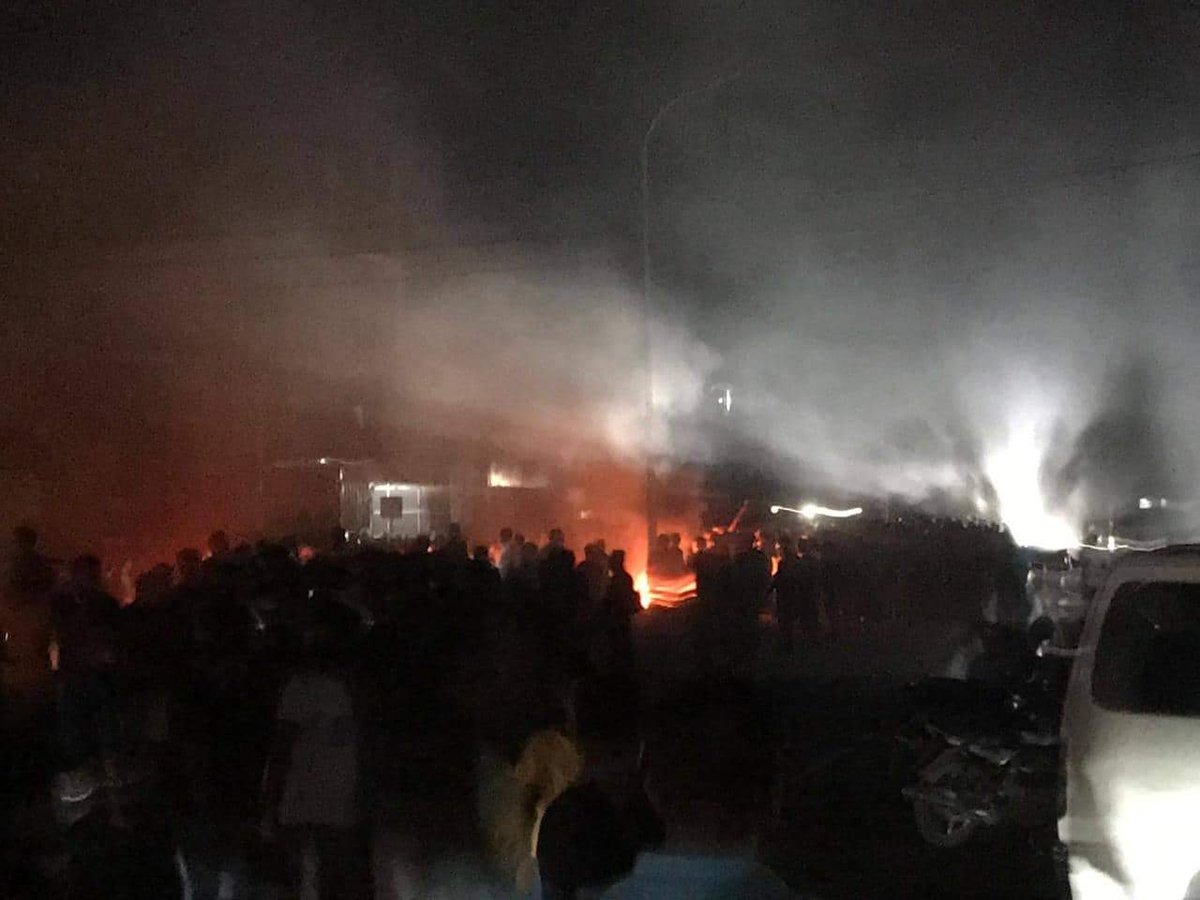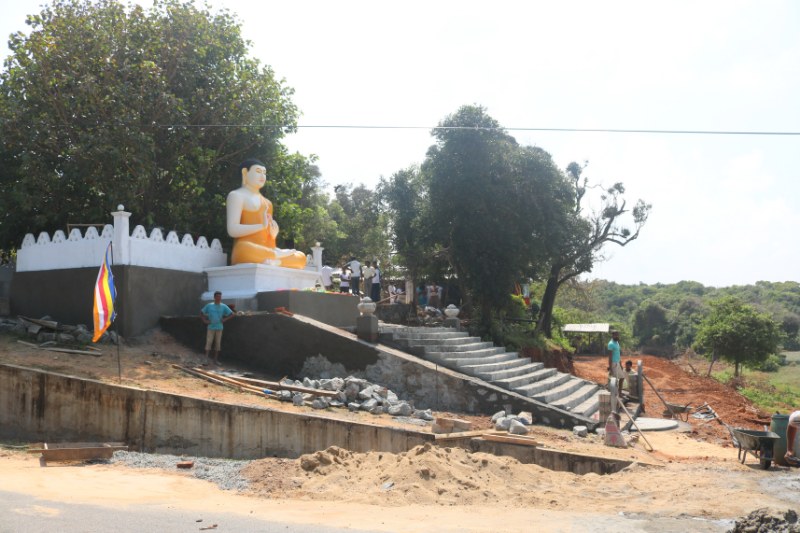“Tensions among ethnic and religious communities persist” the Special Rapporteur on freedom of religion or belief said in his report.
“Significant gaps exist particularly in upholding accountability and access to justice as well as ensuring non-recurrence of human rights violations,” the report added.
Ahmed Shaheed, the Special Rapporteur, conducted his country visit to Sri Lanka 15 August to 26 August 2019.
In his report, the Rapporteur highlighted that despite the armed conflict ending over a decade ago, “reverberations of the ethnic conflict remain apparent in the political, social and economic life of the country and impact the enjoyment of human rights, including the right to freedom of religion or belief.”
Anti-Muslim hate propaganda
There has been a decline in trust among ethno-religious communities following the 2019 Easter Sunday attacks, which targeted churches and hotels on the island, leaving over 250 people dead.
The aftermath of the Easter bombings has seen an intensification of discrimination, hostility and violence against Muslim communities, boycotts of Muslim businesses, vigilante attacks on Muslim women’s dress codes and media hate campaigns.

Sinhala mobs attacking Muslim homes and businesses in 2019
Anti-Muslim attacks were carried out by mobs towards the end of Ramadan in May 2019.
Serious concerns were raised after footage and eyewitness accounts emerged of Sri Lankan security forces colluding with mobs and not acting to prevent or stop the violence.
As the Easter bombings were perpetrated by Islamist terrorists, this has become the pretext for the anti-Muslim groups to intensify incitement to hated and violence against the Muslim communities lately. The lack of response from the authorities against this violence appears to empower the potential perpetrators to continue with their acts of hate crime.
The report noted that anti-Muslim attacks in Sri Lanka are not new and highlighted previous instances of anti-Muslim violence.
The most prominent anti-Muslim violence is the 2014 Aluthgama riots that broke out after Bodu Bala Sena (BBS) held a rally that expressed strong anti-Muslim sentiment…Scores of Muslim owned homes and shops set ablaze, looted, destroyed during several days of mob attacks where the police and army allegedly stood by watching.
Freedom of worship and places of worship
In the north, the religious minorities pointed to the fact that the State has allowed Buddhist monks to erect shrines or Buddhist statues in areas where there is little Buddhist presence or when there is strong objection from local residents.

A Buddhist monk built a vihara next to Neeraviyadi temple
There are also competing claims to historic religious sites, such as the Kanniya case and the Neeraviyadi case. The Mullaitivu court ordered an interim injunction for the construction of a disputed Buddha statue in a Tamil Hindu temple in Neeraviyadi. However, the Buddhist community disregarded the judgement and went ahead with their construction work allegedly with the help of the military and police. During the ongoing dispute, the Buddhist monks had also disrupted Thai Pongal rituals at the Hindu temple.
Rights of Women and Gender-based Discrimination
The report also stressed that ‘religious minority women risk double victimisation at community and personal level due to patriarchal structure in the society and in policies.
After the Easter bombings, the ban on face-covering in public places was proclaimed by the Government under the emergency regulations. This has led to a rise in intolerance towards those who observe religious dress codes, especially among the Muslim women in public institutions such as hospital, schools and public transport.
Politicisation of ethnic and religious identity
The Rapporteur noted in his report that people in Sri Lanka identified themselves as Buddhist, Hindu, Christian or Muslim.
Those who are members of a religious community that does not constitute one of the four main recognised religions in Sri Lanka face discrimination. Even among those who are recognised, the communities who are outnumbered by others in different areas claim that they are marginalised or at risk of being ‘colonised’ by the other religious or ethnic majority.
The report highlights the lack of equality amongst religious communities in Sri Lanka as “Article 9 of the Constitution explicitly guarantees Buddhism the foremost place.” In turn, the majority Sinhalese Buddhist community interpret this as having a “’supreme’ status.
Hence, whenever the majority community itself feels insecure due to the changing religious landscape in the country… it asserts itself more stridently as the majority community representing the nation.
If the tension of identity among religious and ethnic groups continues to exist, “each group of people will remain in their own boxes, rejecting and alienating the ‘others’.”
Religious extremism
The report raises concerns over religious extremism in Sri Lanka and the influence of different religious figures, including Buddhist monks. Organisations such as the Bodu Bala Sena (BBS) have increased the polarisation of communities.
![]()
Hardline Buddhist monk Galagoda Aththe Gnanasara
BBS claimed to be created to protect the Sinhalese and Buddhism and to draw attention to the threats allegedly faced by the Sinhala race in the face of globalisation, flagging that they may become “global minority”.
Impunity and lack of rule of law and accountability
Finally, the report stresses that the culture of impunity in Sri Lanka drives religious extremism and hate speech.
Many complained about how acts of violence are ‘indulged’ by the silence and inaction from the authorities…Large mobs could openly and for several hours rampage through minority community neighbourhoods without hindrance or reaction from law enforcement authorities.
Recommendations
In his conclusions, the Rapporteur expressed that little steps have been taken by the Sri Lankan government to ensure accountability. Since the end of the armed conflict, there has been insecurity and tensions amongst all religious communities.
The Rapporteur highlights that these tensions are “related primarily to the state religion relationship which offers majoritarian privileges, undermining equal protection of the law for minorities.”
The report makes several recommendations to the Government of Sri Lanka including taking “concrete steps to address all the identified root causes of religious intolerance and tensions and to promote trust among different ethnic and religious communities.”
Moreover, the Rapporteur urges Sri Lanka to “address impunity and the lack of accountability urgently by fulfilling the pledges to various international human rights mechanisms.”
The Rapporteur also encourages “religious leaders to speak out against hateful narratives and reject efforts to ostracise and stigmatise minority communities.”
Read the full report here.
We need your support
Sri Lanka is one of the most dangerous places in the world to be a journalist. Tamil journalists are particularly at threat, with at least 41 media workers known to have been killed by the Sri Lankan state or its paramilitaries during and after the armed conflict.
Despite the risks, our team on the ground remain committed to providing detailed and accurate reporting of developments in the Tamil homeland, across the island and around the world, as well as providing expert analysis and insight from the Tamil point of view
We need your support in keeping our journalism going. Support our work today.
For more ways to donate visit https://donate.tamilguardian.com.

